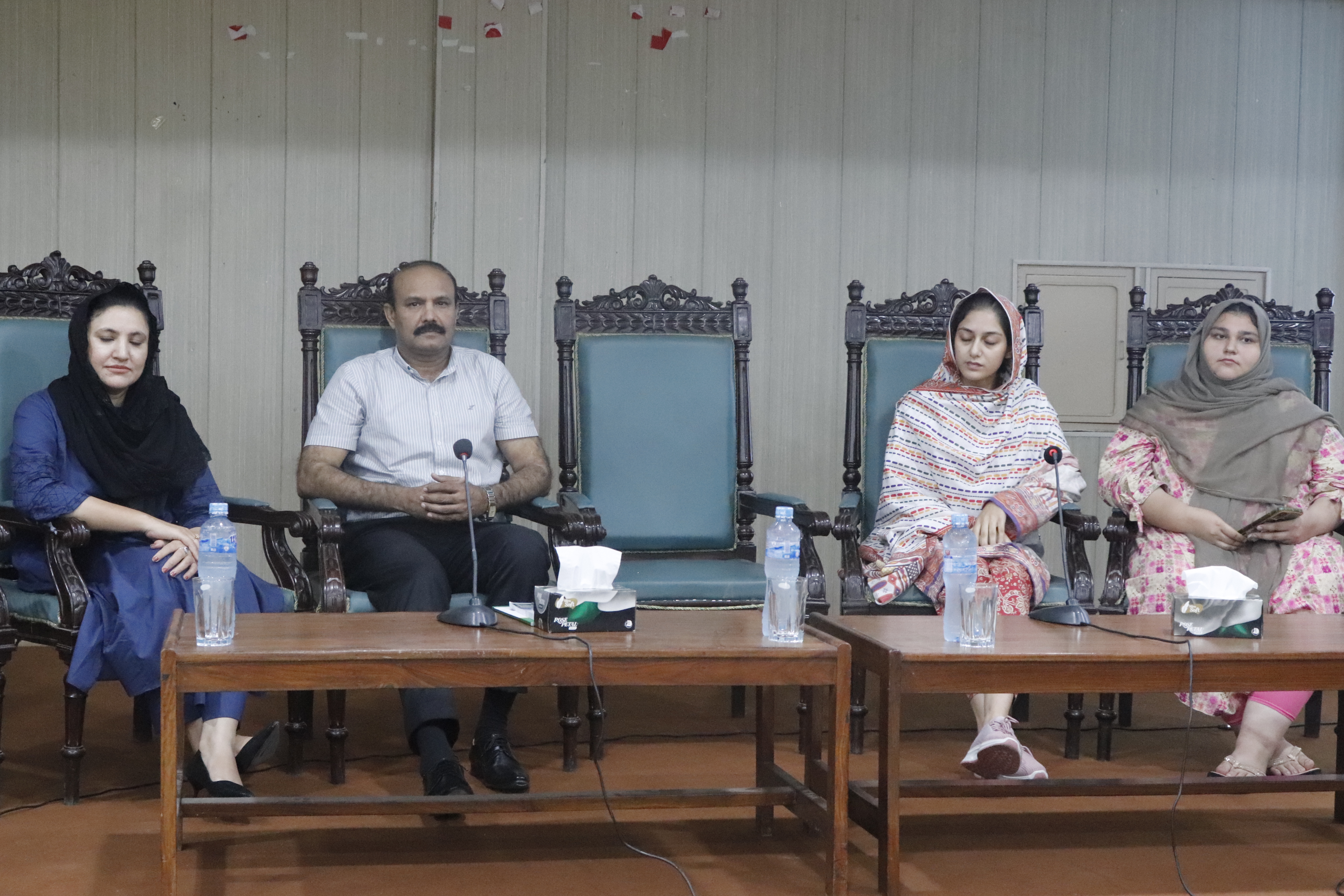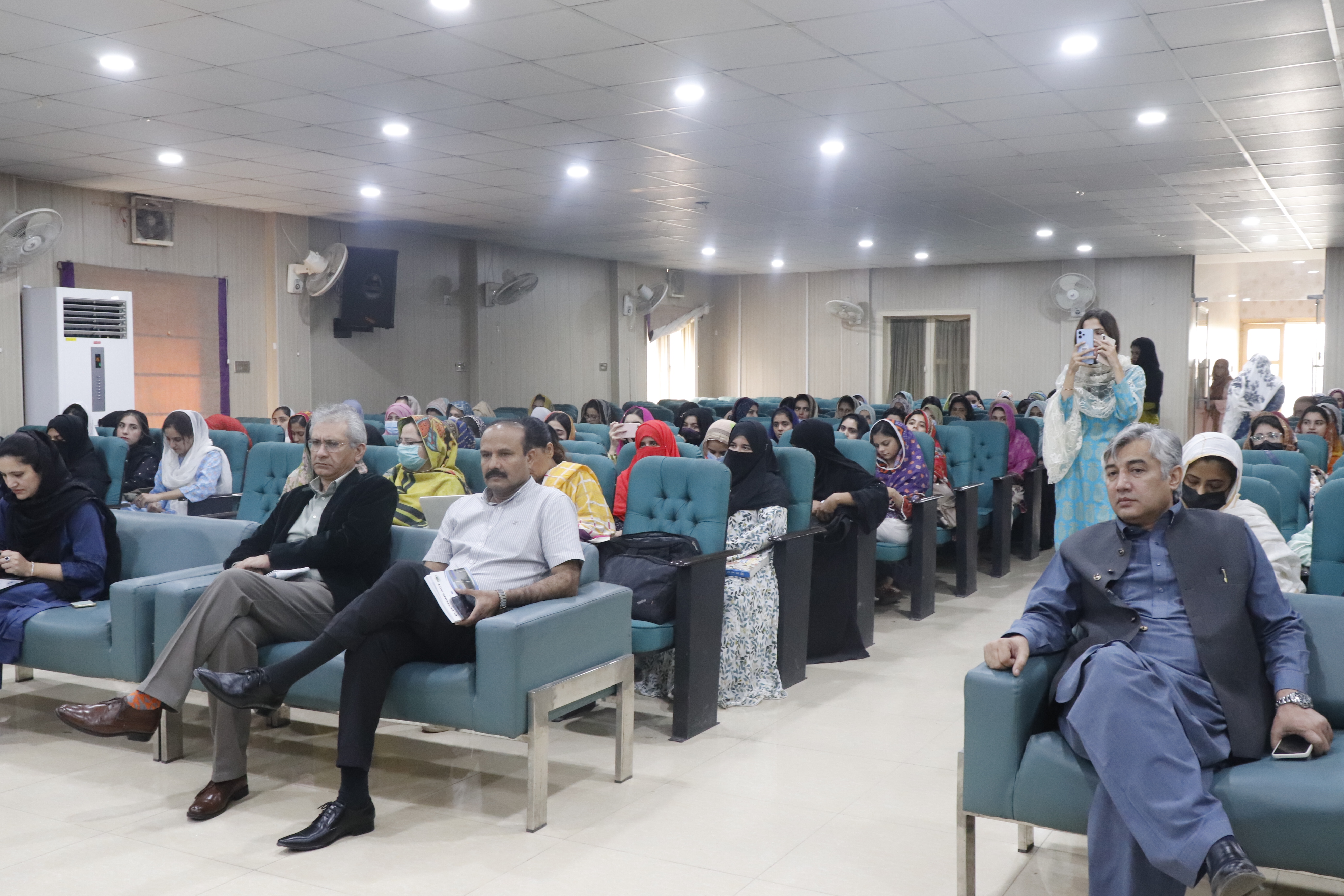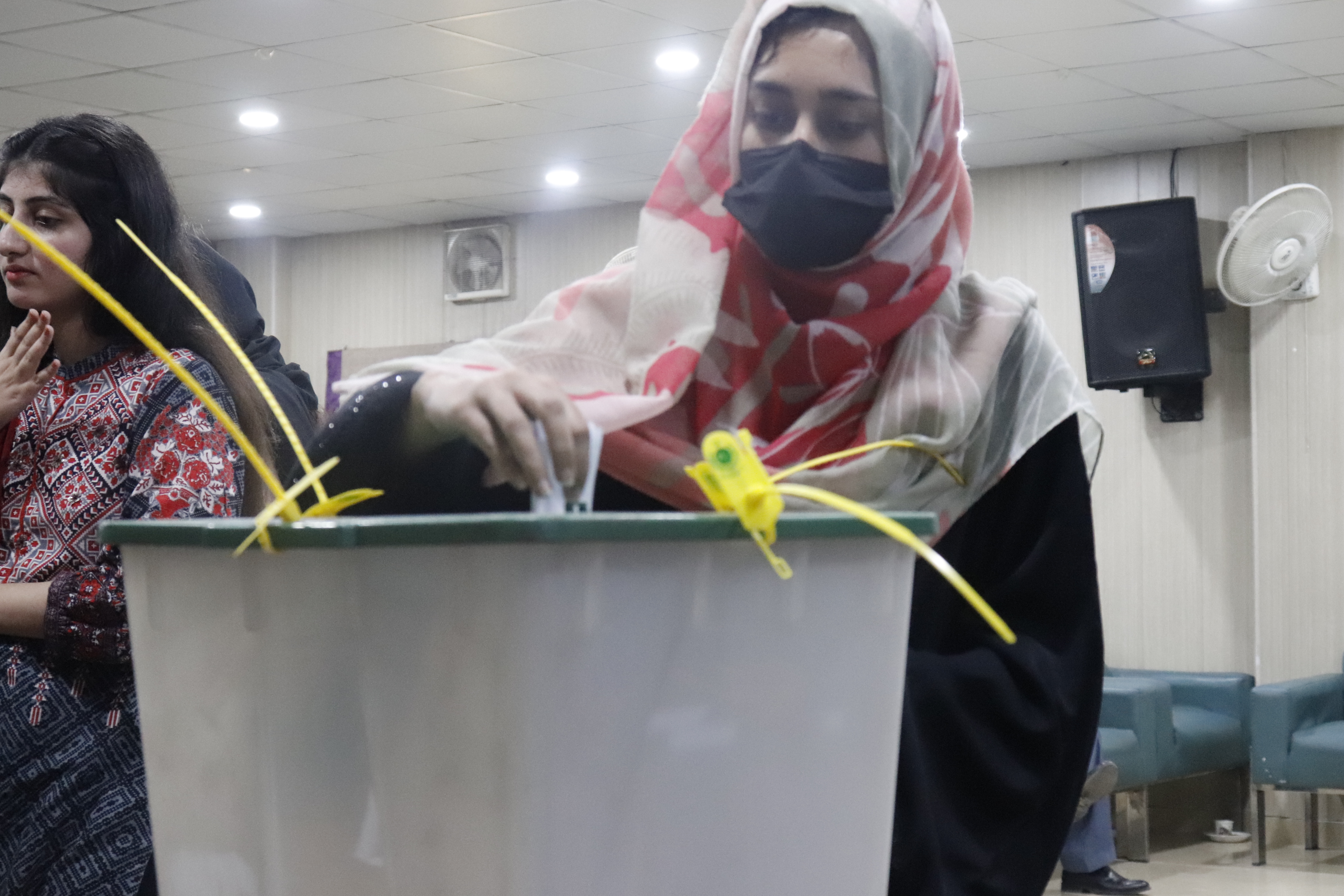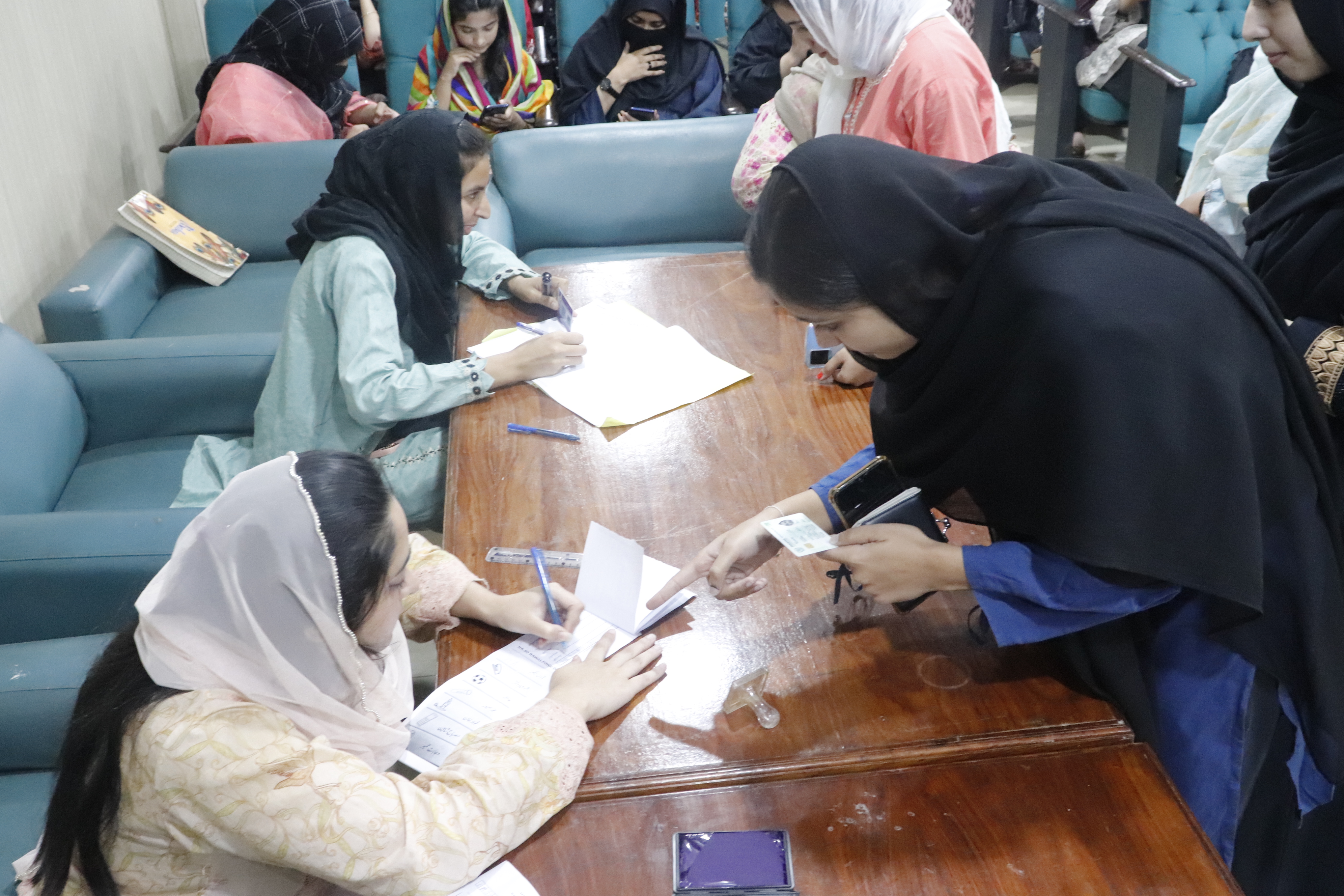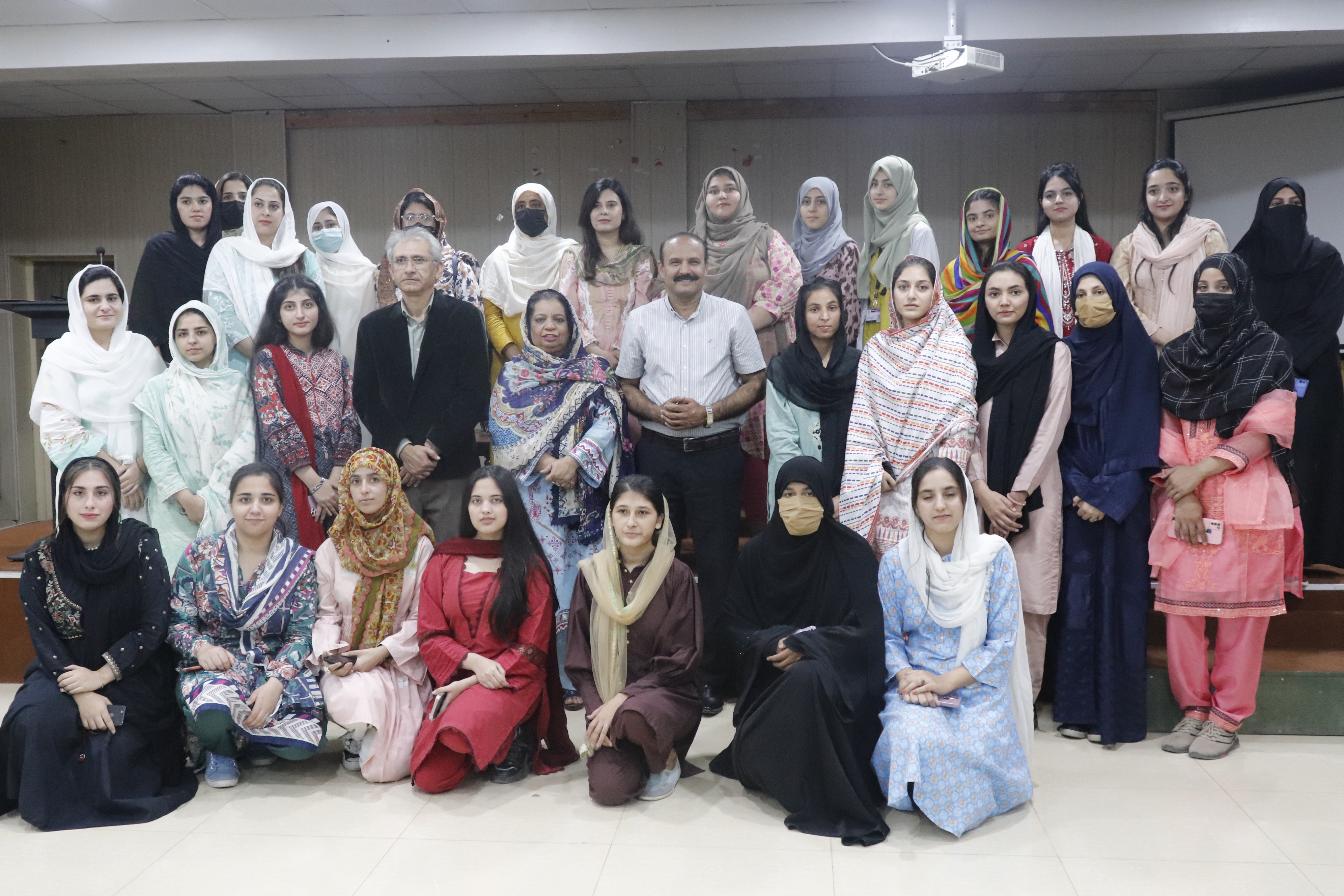 November 01: A consultative session with the students and faculty of the Shaheed Benazir Women University (SBBWU) – Peshawar, was held at their Catering Hall in collaboration with UNDP Pakistan. Mr. Saeed Khan, Regional Election Commissioner, Peshawar represented the Election Commission of Pakistan (ECP) at the consultative session.
November 01: A consultative session with the students and faculty of the Shaheed Benazir Women University (SBBWU) – Peshawar, was held at their Catering Hall in collaboration with UNDP Pakistan. Mr. Saeed Khan, Regional Election Commissioner, Peshawar represented the Election Commission of Pakistan (ECP) at the consultative session.
Mr. Faheem Ahmed Khan, Senior Projects Manager PILDAT, welcomed participants and introduced the panelists of the consultation. The panel members included Mr. Saeed Khan, Regional Election Commissioner, Peshawar. The Youth Representatives included Ms. Zahra from the Department of Political Science and Ms. Arshi from the Department of Law at the university. Whereas the faculty was represented by Dr. Sumaira Gul of the Department of Political Science.
During his presentation, Mr. Faheem Ahmed Khan, Senior Projects Manager PILDAT discussed the demographic distribution of registered voters in Pakistan, highlighting 45% of the total registered voters belonging to the age group of 18-35 years. Additionally, he provided a comparative analysis of the voting behaviors shown by the young population of Pakistan and India. Notably, the youth voter participation in India surpassed the overall voter turnout seen in the most recent Indian elections. The panelists agreed that low youth voter participation was a genuine problem, not a myth and gave their views on the low youth voter participation.
The youth representatives in their remarks urged upon the political parties to play a more vibrant role in raising awareness amongst the young voters about the importance of their vote and make more concentrated efforts towards youth voter awareness. They also expressed their concern that the political parties are reluctant to give representation to the youth in their ranks and this has discouraged the youth from coming forward and being involved in the electoral process. They said that, in the 2017 election Act, women’s participation has been made possible by ensuring that 5% of tickets are given to women on general seats and another 33% representation is guaranteed through reserved seats; a similar provision in the law must also be made for the youth to improve their participation in the electoral process.
Mr. Saeed Khan, Regional Election Commissioner Peshawar, responding to the remarks of the youth representatives mentioned that the Election Commission was not the law-making body but merely implements the laws made by the Parliament. He urged that the youth should participate in the electoral process and make sure that they elect such people who in turn will speak for their rights in the parliament and would make such an amendment in the election act possible.
Addressing the concerns of the youth about the transparency of the electoral process, he remarked that the electoral process was fair and transparent and he said that the students should participate in the mock polling exercise to have a better understanding of the process of voting and counting and declaring of results by the election commission. Responding to the comments about the use of technology (EVMs and I-Voting) he said that the ECP was open to technology and is conducting pilot projects for the same. He added that the parliament has to legislate for the use of EVMs and ECP will do accordingly.
Dr. Sumaira Gul of the Department of Political Science, while giving the university perspective said that the student unions should be revived and HEC should include a course on the constitution of Pakistan and Civic rights and responsibilities in the curriculum.
The session was attended by a total of 147 students.
Following the panel discussion, students enthusiastically took part in a mock polling exercise, actively casting their votes. Their eagerness to experience the democratic process firsthand and engage in meaningful discussions about the topics presented during the panel discussion was evident.
